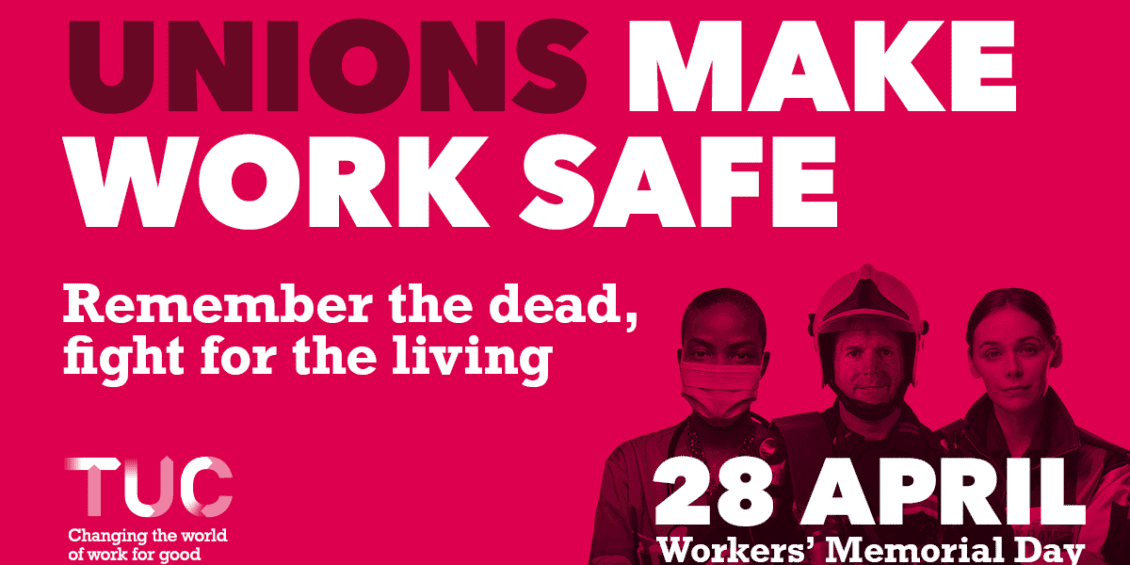
Every year on 28th April, we gather to remember those who lost their lives, health, or livelihoods to unsafe work. Workers’ Memorial Day is a reminder that safe work is a right—a right too often sacrificed at the altar of profit and political neglect. But this year, as we mourn the dead, we must also confront a systemic threat to the living: a broken electoral system that perpetuates cycles of exploitation and undermines workers’ rights.
Globally, work kills over three million people annually, more than war. In the UK, official figures understate the crisis: 138 workers died in work-related accidents in 2022/23, but the Hazards Campaign estimates this could be much higher when including illnesses like asbestos-related cancers and long-COVID. Governments and employers routinely de-prioritise safety and our political system lets them.
First Past the Post entrenches neglect
First Past the Post (FPTP) – Westminster’s archaic voting system – entrenches this neglect. It hands disproportionate power to parties that win minorities of votes, enabling right-wing governments to dismantle worker protections with impunity. Consider the past decade: Tory governments – elected on shrinking vote shares – stripped our unions of their collective bargaining rights, slashed workplace inspections, and left millions in insecure jobs. Each rollback was enabled by FPTP’s ability to let governments walk away from us.
FPTP rewards short-termism and punishes progress. Under this system, governments lack accountability. The Tories’ 2019 majority, won with just 43.6% of the vote, allowed them to ignore the 56% of voters who opposed their agenda.
We now have a Labour government, but elected on an even smaller vote share (34%).
Gains won, can quickly be lost
Whilst Labour’s new Employment Rights Bill will improve workers rights, those gains are precarious. Labour’s post-war social reforms were systematically dismantled under Thatcher and her successors, a cycle enabled by FPTP’s winner-takes-all logic.
Resources flow to swing constituencies, not the areas of greatest need. The result is a democratic deficit where corporate lobbyists and unelected Lords wield outsized influence, while workers, especially those in precarious, low-paid jobs, are silenced. Whoever can cosy up to Ministers the best has the most influence. Meanwhile, statutory sick pay remains a paltry £116.75 per week, forcing ill workers to choose between health and survival.
The trade union movement has always fought because of our strength in collective bargaining power. Today, those conversations include rewiring our democracy. Over two-thirds of Labour-linked unions now back electoral reform, recognising that FPTP stifles working-class voices. From USDAW to Unite, unions see PR as vital to securing lasting protections, governments that reflect voters’ real feelings are less likely to dismantle hard-won rights.
New Zealand shows us the way
Look to New Zealand: After adopting PR in 1996, Labour-led coalitions repealed anti-union laws, expanded parental leave, and strengthened workplace safety. These reforms were safeguarded even under subsequent national governments as the centre-right party didn’t have the power to ignore the working class anymore. Closer to home, devolved nations using PR (Scotland, Wales and Northern Ireland) have higher female and BAME representation in their parliaments and more cooperation from parties on how to counter far-right representation; fairer systems foster inclusive governments. .
This Workers’ Memorial Day, we honour the dead by demanding a democracy that protects the living. Politics for the Many, backed by 11 major unions and 83% of Labour members, is calling for an independent commission on electoral reform. Safe workplaces require accountable governments, workers’ rights cannot survive under a rigged system, and electoral reform is a prerequisite for justice.